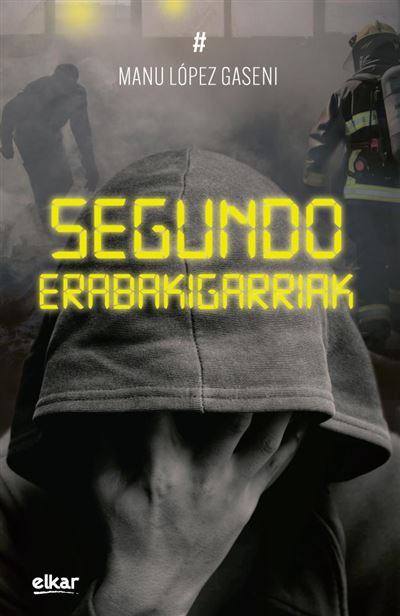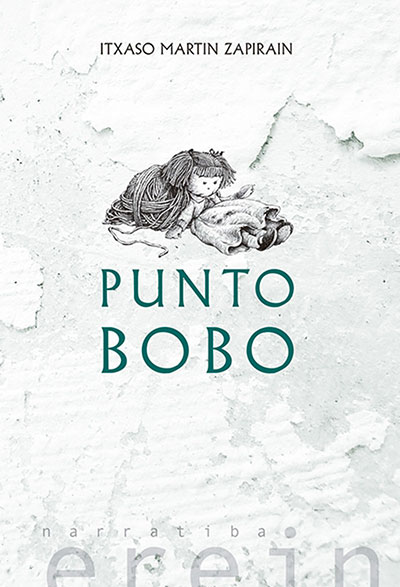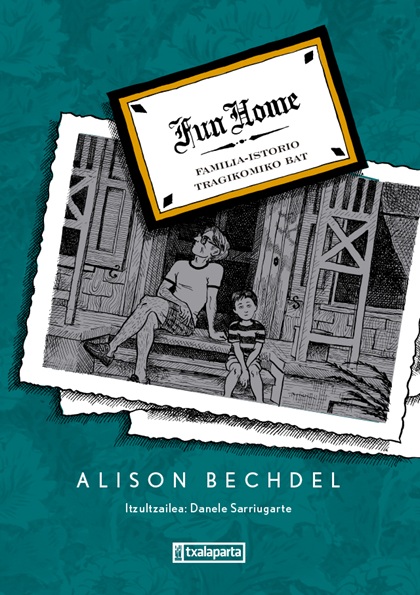The fate of the cards
.jpg)
Pamiela, 2012
There are many ways to address the 1936 war. One of them, not to mention what happened in it, is that of prewar and postwar. That is where the book of Patxi Zubizarreta is located.
In order to attract the reader from the outset, it is a statement that seems to be a contradiction, that of Alberto Olmos, a writer who says he cannot support novels about war and the holocaust. Reading this first text also tells us Zubizarreta’s intention: this novel is an attempt to break this prejudice and show that there are exceptions to the tendency to boost the cultural industries. It sounds like an ambition, but after reading the novel you understand the reason for the quote and the book, because it is not a novel about war, but a reflection about friendship. On this occasion, the writer has not relied on a love story to relate the qualities of the relationship with war, but pain, betrayal and repentance are very present.
Comparing with the strategies of representation of war in the Basque novel, I would say that in this work we have a different proposal, especially with regard to structure and form. Divided into three parts, each responds to a record, a mold and a shape.
The first chapter is an exchange of letters between Gabriel and Rafael in which the solidity of his relationship is seen, while the war is about to begin, the couple will head from Hitano to Zano, and Gabriel, from Euskera to Castilian, as a precedent of different ideologies.
The second part gets a little heavier, perhaps because the historiographical data contrast with the live oral record of the first chapter. However, there are signs of the relationship between the main characters, and also the secondary characters enrich the environment, such as the escort soldier who wanted to be a teacher or Lucia. However, in this account of the world, which is often depicted as very masculine, there are also no female voices, and I have been sad: Let Lucia's experience, thought and feelings not be translated into context, although the character's decisions reflect the complexity of his situation.
Finally, in the third chapter, the second person narrator focuses on Rafael to tell his last days. So the tension is growing to the end.
Decisive seconds
Manu López Gaseni
Beste, 2024
--------------------------------------------------
You start reading this short novel and you feel trapped, and in that it has to do with the intense and fast pace set by the writer. In the first ten pages we will find out... [+]
When the dragon swallowed the
sun Aksinja Kermauner
Alberdania, 2024
-------------------------------------------------------
Dozens of books have been written by Slovenian writer Aksinja Kermauner. This is the first published in Basque, translated by Patxi Zubizarreta... [+]
Puntobobo
Itxaso Martin Zapirain
Sowing, 2024
----------------------------------------------------
The title and cover image (Puntobobo, Wool Bite and Rag Doll) will suggest mental health, making the point and childhood, but more patches will be rolled up as the book... [+]
Itsasoa bete urre
Dani Martirena
Irudiak: Ana Ibañez
Txalaparta, 2022
--------------------------------------------
Liburu honetara barneratzen den irakurleak sentsazio ugari izango ditu. Deigarria da azaleko letren urre kolorea eta zuritasuna, goialdean ageri den... [+]
Migranteak
Issa watanabe
1545 argitaletxea, 2024
-------------------------------------------
Ezagutzen ez nuen 1545 argitaletxeak 2024an itzuli eta kaleratu du Issa Watanaberen Migranteak liburua. Animalia talde batek egiten duen migrazio prozesua kontatzen du; eta... [+]
Adania
Shibli
Translation: Aitor Blanco Leoz
Igela, 2024
----------------------------------------------
During these days, an Israeli soldier is bombarding hospitals, schools, Palestinian refugee camps with drones as if it were a video game, while in the West we see on... [+]
Fun Home. A tragic family
history Alison Bechdel
Txalaparta, 2024
---------------------------------------------
Fun Home. Alison Bechdel is known for the first publication of the graphic novel A Tragic Family Story (2006), although he himself participated in several... [+]
PLEIBAK
Miren Amuriza Plaza
Susa, 2024
--------------------------------------------------
Susa has published Miren Amuriza's second novel in the atrium of the Durango Fair: Plead. It's plebiscites because you're singing about an earlier recording. Berria includes the... [+]
Book Non sense
Edward Lear
Translation: Juan Kruz Igerabide
Denonartean, 2024
----------------------------------------------
The writer and illustrator Edward Lear published this work in 1846. As Igerabide says in the prologue of the book, “nonsense humor, absurd... [+]
Hetero
Uxue Alberdi
Susa, 2024
----------------------------------------------------
In the era of negationism, the manosphere and trolls, the contribution of literature is essential, because it is an exceptional instrument to look at the folds of reality: the situations... [+]
Guardasola wants rain
Patxi Zubizarreta
Illustrations: Irrimarra
Ibaizabal, 2024
---------------------------------------------
30 years ago Patxi Zubizarreta published the book Marigoringoak hegan; J. M. Illustrated by Lavarello and by the hand of the Catalan publisher... [+]
Eyes on the horizon
Writer: Illustrator Miren Agur
Meabe: Ane Pikaza
Elkar, 2020
-------------------------------------------------------
Miren Agur Meabe has published several texts and books. He's worked with all the literary genres: children's and youth literature,... [+]
Barrengaizto
Beatrice Salvioni (Translation:
deceit Fernando Rey)
Txalaparta, 2024
------------------------------------------------
Fernando Rey has chosen the title of Barrizto to translate La malnata de Beatrice Salvioni. King says he has tried to be the voice of the... [+]
PELLOKERIAK
Ruben Ruiz
Illustrations: Joseba Beramendi, exprai.
Elkar, 2022
-----------------------------------------------
Rubén Ruiz offers a new work of short stories. They are not micronarratives, because the stories, although they can be read independently, have a... [+]
Memet
Noemie Marsily and Isabella
Cieli For Centos, 2022
--------------------------------------------------
We opened the zipper of the camping in red and looked through the leek along with Lucy. With this cover, the reader receives the comic book Memet. Simple words... [+]

























